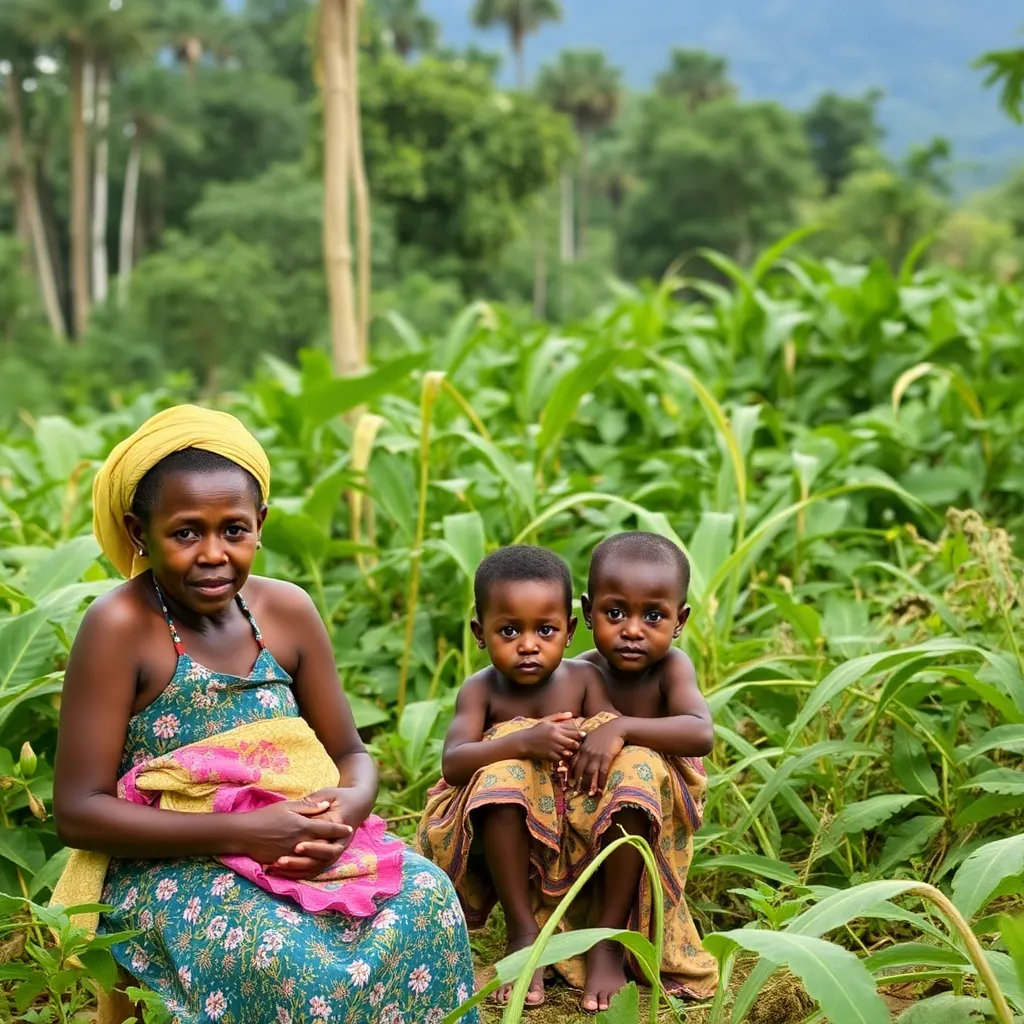
In the vast, lush forests of the Congo Basin, a fascinating study has unveiled the intricate strategies employed by BaYaka forager mothers as they navigate the delicate balance between caring for their young children and securing essential resources through collaborative foraging. This research, conducted by a team of anthropologists, provides valuable insights into the remarkable adaptability and resilience of these hunter-gatherer communities, shedding light on the evolutionary factors that have shaped human societies. Foraging, the practice of actively searching for and collecting wild foods, is a fundamental aspect of the BaYaka way of life, and it is within this context that the researchers examined the trade-offs faced by mothers as they strive to fulfill both their childcare and subsistence responsibilities.
Motherhood in the Congo Basin
The BaYaka, like many hunter-gatherer societies, are known for their collaborative approach to childcare, with extended family members and community members often pitching in to support mothers. This cooperative breeding model allows BaYaka women to balance the demands of raising young children with the need to contribute to the group’s overall food acquisition efforts. However, the researchers were particularly interested in understanding how the presence of breastfeeding infants affects the mobility, energy expenditure, and food returns of these foraging mothers.
Navigating the Challenges of Childcare and Foraging
The study, which spanned six weeks and involved 22 BaYaka mothers, utilized a range of innovative techniques to gather comprehensive data. GPS tracking, heart rate measurements, and detailed food return records were collected during 348 foraging trips, providing the researchers with a wealth of information to analyze.

The findings reveal an intriguing pattern: BaYaka mothers who took their breastfeeding infants on foraging trips went on longer-duration expeditions compared to those who left their infants in the village. This suggests that mothers may have adjusted their strategies to accommodate the needs of their young children, potentially spending more time at foraging patches to allow for intermittent breastfeeding. Surprisingly, however, the presence of infants did not significantly impact the mothers’ overall mobility, energy expenditure, or food returns.
The Role of Cooperative Foraging
The study also explored the dynamics of group foraging, a common practice among the BaYaka. The researchers found that mothers who foraged in groups, regardless of whether they had their infants with them, traveled longer distances and for longer durations than those who foraged alone. This is likely due to the childcare support provided by other group members, which allows the mothers to conserve their energy and focus on food acquisition.

Interestingly, the researchers discovered that the presence of children, rather than adults, in the foraging groups actually increased the mothers’ net food returns. This suggests that even young children can contribute to the group’s overall foraging success, potentially by assisting with tasks or providing additional caregiving support.
Balancing Act: Strategies for Survival
The findings of this study highlight the remarkable adaptability and resilience of BaYaka mothers as they navigate the challenges of childcare and subsistence activities. Despite the energetic burden of carrying and breastfeeding infants, these women are able to maintain their overall energy expenditure and food returns through strategic adjustments to their foraging behavior and the support of their cooperative community.

The insights gained from this research have broader implications for our understanding of human evolution and the factors that have contributed to the success of our species. By shedding light on the intricate interplay between childcare and subsistence strategies, this study underscores the critical role that cooperative breeding and shared childcare responsibilities have played in shaping human societies and enabling our expansion across diverse environments.
As we continue to explore the complex relationships between biology, culture, and the environment, studies like this one on the BaYaka foragers of the Congo Basin serve as valuable reminders of the resilience and adaptability of the human spirit, even in the face of seemingly daunting challenges.
Comprehensive Background and Context
The BaYaka are a contemporary hunter-gatherer population inhabiting the vast, lush forests of the Congo Basin in Central Africa. Their subsistence strategies revolve around a diverse range of activities, including hunting, gathering, fishing, and even some crop cultivation. Within this dynamic and resource-rich environment, the BaYaka have developed a unique social and cultural framework that emphasizes the importance of cooperative childcare and shared responsibilities.
Cooperative Breeding and Allomaternal Care
One of the defining features of the BaYaka society is their adoption of a Click Here
